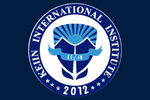Mission
categories, who owns the methods and techniques of processing,
analysis and interpretation of different types and types of text in
Korean, who is able to analyze the patterns of the literary process,
the artistic meaning of a literary work in connection with the social
-literary situation and the culture of the era. Much attention is also
paid to teaching professional knowledge of the Korean language,
which presupposes knowledge of its linguocultural,
communicative-pragmatic and functional features.
Educational Purposes
structuring, critical analysis and fusion of the necessary information, the
application of a systematic approach to solving the assigned tasks
Development of the ability to establish and maintain
relationships in the social and professional sphere
Upbringing of a person who perceives the intercultural diversity of society
in socio-historical, ethnic and philosophical contexts
Facts and Figures
4 years
Duration
Full-Time
Form of study
Bachelor
Level of education
English, Korean
Languages
Korean Philologist
Qualification
47.000 KGS
Tuition fee
Facts and Figures
4 years
Full-Time
Bachelor
Duration
Form of study
Level of education
English,Korean
Korean Philologist
85.000 KGS
Languages
Qualification
Tuition fee
Expected learning outcomes
Demonstrate knowledge of the main provisions and concepts in the field of theory and history of literature (literatures) and the main studied language (languages), communication theory, philological analysis and interpretation of the text, understanding of history, the current state and development prospects of philology;
Have basic skills in collecting and analyzing literary and linguistic facts using traditional methods and modern information technologies
Able to apply the knowledge gained in the field of theory and history of literature (literatures) and the studied foreign language (languages), communication theory, philological analysis and interpretation of the text in his own research activities
Career opportunities
After completing your Philology diploma, you can look forward to career opportunities in the
following areas: Education, culture and arts, information and communication
technology, administrative and office activities, media,
publishing and printing.

